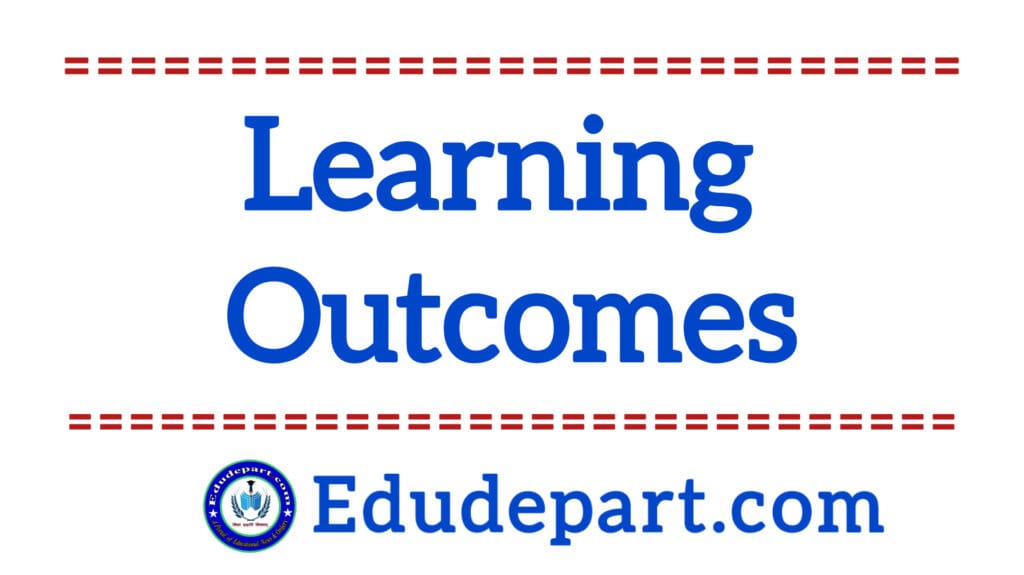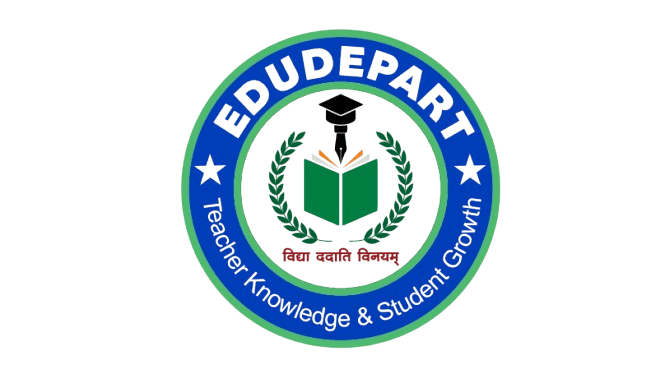Learning Outcomes : अंग्रेजी के अध्ययन के कई महत्वपूर्ण उद्देश्य हैं, जिनमें से कुछ निम्नलिखित हैं:
- भाषाई कौशल का विकास: अंग्रेजी पढ़ने, लिखने, बोलने और सुनने की क्षमता में सुधार करने में मदद करता है।
- साहित्यिक ज्ञान: अंग्रेजी साहित्य के विविध रूपों—कविता, उपन्यास, निबंध—के अध्ययन से छात्रों को साहित्यिक संवेदनशीलता और रचनात्मकता का विकास होता है।
- वैश्विक संवाद: अंग्रेजी एक अंतरराष्ट्रीय भाषा है, और इसके अध्ययन से छात्रों को वैश्विक संवाद और संचार में मदद मिलती है।
- संस्कृति की समझ: अंग्रेजी के माध्यम से छात्रों को विभिन्न संस्कृतियों, परंपराओं, और सामाजिक मुद्दों की समझ विकसित होती है।
- विचार व्यक्त करने की क्षमता: अंग्रेजी अध्ययन से छात्रों को अपने विचारों और भावनाओं को स्पष्ट और प्रभावशाली तरीके से व्यक्त करने की क्षमता मिलती है।
- व्याकरण और भाषा संरचना: अंग्रेजी व्याकरण की समझ से छात्रों को सही और प्रभावी भाषा प्रयोग में सहायता मिलती है।
- सृजनात्मक लेखन: अंग्रेजी के अध्ययन से रचनात्मक लेखन कौशल में वृद्धि होती है, जिससे छात्र नए विचारों को प्रस्तुत कर सकते हैं।
- अनुसंधान और विश्लेषण: अंग्रेजी अध्ययन छात्रों को विभिन्न विषयों पर अनुसंधान करने और उनके विश्लेषणात्मक दृष्टिकोण को विकसित करने में मदद करता है।
कक्षा 2 अंग्रेजी सीखने के प्रतिफल (Class 2 english Learning Outcomes)
LE201.sings songs or rhymes with action.
LE202. Responds to comprehension questions related to stories and poems, in home language.
LE203. Identifies characters, and sequence of events in a story.
LE204. Expresses verbally her or his opinion and asks questions about the characters, storyline, etc., in English/home language.
LE205. Draws/ writes a few words or short sentence in response to poems and stories.
LE206. listens to English words, greetings, polite forms of expression, and responds in English/home language like ‘How are you?’, ‘I’m fine, thank you.’etc.
LE207. Uses simple adjectives related to size, shape, colour, weight, texture such as ‘big’, ‘small’, ’round’, ‘pink’ ‘red’ ‘heavy’ ‘light’ ‘soft’ etc.
LE208. listens to short texts from Children’s section of news- papers, read out by the teacher
LE209. listens to instrucations and draws a picture.
LE210. Uses pronouns related to gender like ‘his/her/, ‘he/she’, ‘it’ and other pronouns like ‘this/that’, ‘here/there’ ‘these/ those’ etc.
LE211. Uses prepositions like ‘before’, ‘between” etc.
LE212. Composes and writes simple, short sentences with space between words.

Learning Outcomes, Learning Outcomes, Learning Outcomes
